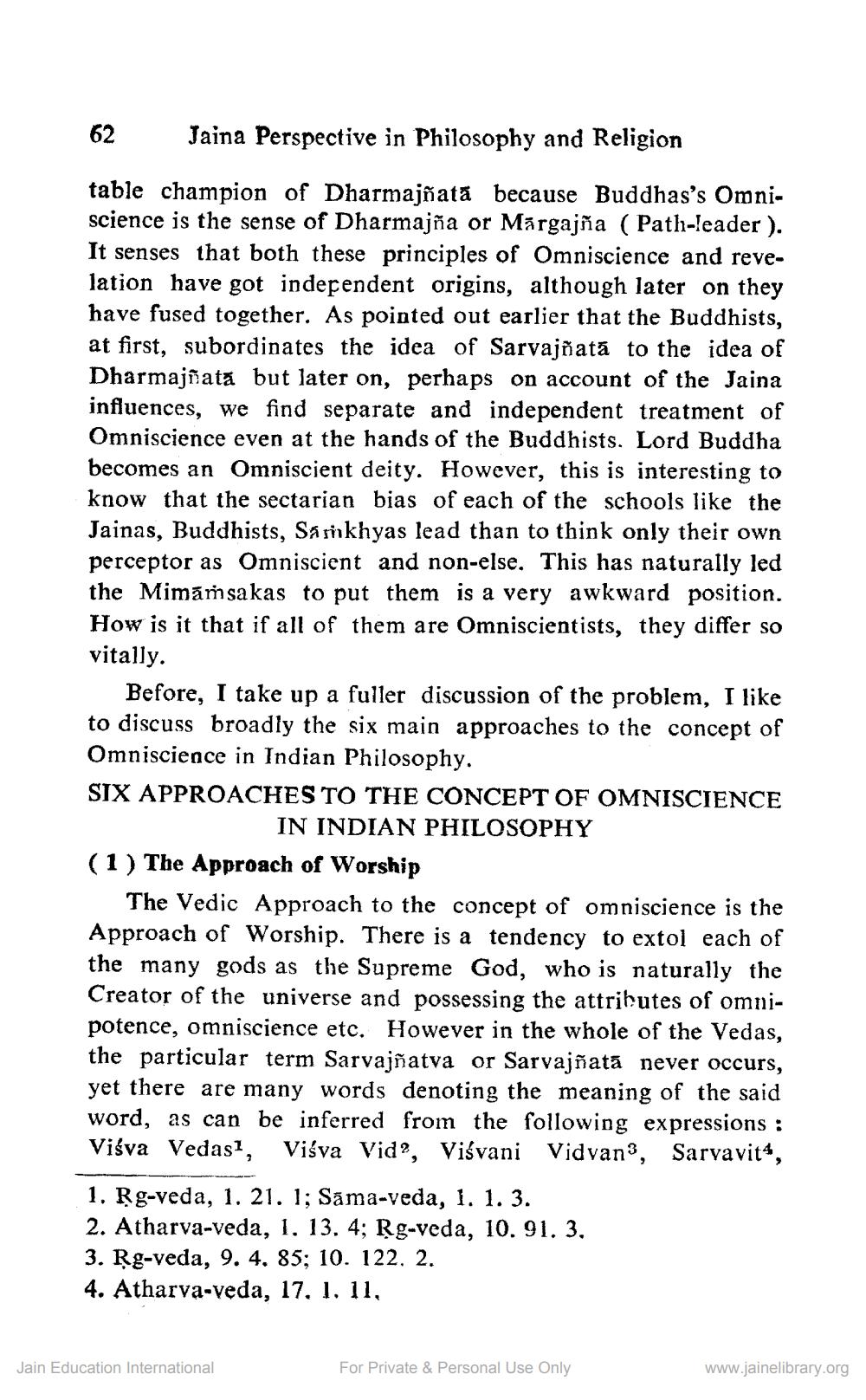________________
62
Jaina Perspective in Philosophy and Religion
table champion of Dharmajñata because Buddhas's Omniscience is the sense of Dharmajña or Margajña (Path-leader ). It senses that both these principles of Omniscience and revelation have got independent origins, although later on they have fused together. As pointed out earlier that the Buddhists, at first, subordinates the idea of Sarvajñatā to the idea of Dharmajñata but later on, perhaps on account of the Jaina influences, we find separate and independent treatment of Omniscience even at the hands of the Buddhists. Lord Buddha becomes an Omniscient deity. However, this is interesting to know that the sectarian bias of each of the schools like the Jainas, Buddhists, Sámkhyas lead than to think only their own perceptor as Omniscient and non-else. This has naturally led the Mimamsakas to put them is a very awkward position. How is it that if all of them are Omniscientists, they differ so vitally.
Before, I take up a fuller discussion of the problem, I like to discuss broadly the six main approaches to the concept of Omniscience in Indian Philosophy. SIX APPROACHES TO THE CONCEPT OF OMNISCIENCE
IN INDIAN PHILOSOPHY (1) The Approach of Worship
The Vedic Approach to the concept of omniscience is the Approach of Worship. There is a tendency to extol each of the many gods as the Supreme God, who is naturally the Creator of the universe and possessing the attributes of omnipotence, omniscience etc. However in the whole of the Vedas, the particular term Sarvajñatva or Sarvajñatā never occurs, yet there are many words denoting the meaning of the said word, as can be inferred from the following expressions : Viśva Vedas?, Viśva Vida, Viśvani Vidvan3, Sarvavit*, 1. Rg-veda, 1. 21. 1; Sama-veda, 1. 1. 3. 2. Atharva-veda, 1. 13. 4; Rg-veda, 10. 91. 3, 3. Rg-veda, 9. 4. 85; 10. 122. 2. 4. Atharva-veda, 17, 1. 11,
Jain Education International
For Private & Personal Use Only
www.jainelibrary.org




